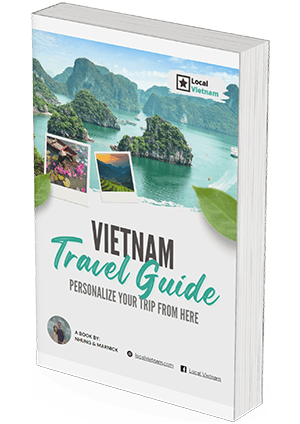Do British citizens need a visa for Vietnam?
No, British citizens can visit Vietnam without a visa for up to 45 days. However, this does not apply to British National Overseas (BNO) passport holders, who must obtain a visa. For most UK travelers, the exemption simplifies entry requirements for short stays.
What is a visa-free entry?
Visa-free entry means most British travelers can visit Vietnam without needing to apply for a visa before or during their trip. This exemption is valid for up to 45 days but excludes holders of a British National Overseas (BNO) passport, who need a visa.
How does a visa-free entry work?
Visa-free entry for British citizens is seamless—there’s no need to arrange anything beforehand or pay extra fees upon arrival. However, there are still a few conditions to fulfill:
- Maximum stay of 45 days.
- Your passport must have at least 6 months of validity left from your entry date.
- Ensure your passport has at least 2 blank pages for necessary stamps.
Vietnam e-visa for United Kingdom
British citizens generally don’t need an e-visa for stays of up to 45 days, thanks to the visa exemption program. However, if you plan to stay longer, the e-visa allows you to extend your visit for up to 90 days. This makes it the best option for extended trips to Vietnam.
The e-visa system has replaced the old visa-on-arrival process, which required an approval letter from a local agency. Now, British travelers can apply quickly and securely through the official Vietnamese Immigration Department website.
Important notes:
- An e-visa is valid for up to 90 days, depending on the dates you choose in your application. It’s not automatically set for 90 days.
- Processing typically takes 3 to 5 working days but can be longer during peak travel periods or national holidays. Apply well in advance to avoid delays.
Steps to Apply for a Vietnam e-visa
Step 1: Use the official Vietnamese Immigration website
There are many visa services that offer Vietnam visas, but using these services means you’ll pay the standard $25 fee plus their surcharge, and you’ll still need to provide the same information. Additionally, their processing times may vary and could be longer. To avoid unnecessary delays and costs, apply directly through the official Vietnamese Immigration website: https://evisa.gov.vn.
Step 2: Fill in all details correctly
You’ll need to upload:
- A passport-style photo.
- A scan or clear photo of your passport’s biographical page.
Double-check all the information you enter. If there’s an error, you’ll receive a notification to correct it, but this will restart the 3-5 working day processing time. If your name or other critical details are incorrect on the issued e-visa, it will be invalid, and you could be denied entry.
Tip: Read our complete guide and tips for “Applying for a Vietnam e-visa” to avoid mistakes and ensure your application is processed smoothly.
Step 3: Pay the fee and wait
The e-visa application fee is $25 USD. Once you’ve paid, processing will take 3-5 working days. Note that processing does not occur on weekends or during official Vietnamese holidays. Keep in mind any time differences, and if you haven’t received an update after a week, check your email’s spam folder.
Step 4: Receive and print your e-visa
While it’s acceptable to show the e-visa on your phone, it’s recommended to print a physical copy as a backup. This ensures you can present it whenever required, even in areas with limited phone access.
FAQ about Vietnam visas
Do British need a visa for Vietnam?
No, British passport holders can enter Vietnam without a visa for a maximum stay of 15 days. However, this visa exemption does not apply to British National (Overseas) passport holders. If British citizens wish to stay longer than 15 days, they will need to apply for a visa before their trip or consider other visa options such as an e-visa or visa on arrival.
Can British citizens get a visa on arrival in Vietnam?
No, British citizens cannot get a visa on arrival in Vietnam. The visa on arrival service has been discontinued and replaced by the e-visa system. However, British passport holders can enjoy a 15-day visa exemption om arrival, which allows them to enter Vietnam without a visa for a short visit. If they plan to stay longer or for purposes other than tourism, they will need to apply for an appropriate visa in advance.
How can British citizens stay longer than 30 days in Vietnam?
To stay longer than 30 days in Vietnam, British citizens can choose to exit the country and re-enter on a new visa. Extending visas can be a complicated and costly process, making this option the most convenient and practical. By leaving Vietnam and obtaining a new visa before re-entry, British citizens can enjoy an extended stay without the need for complex visa extensions.



